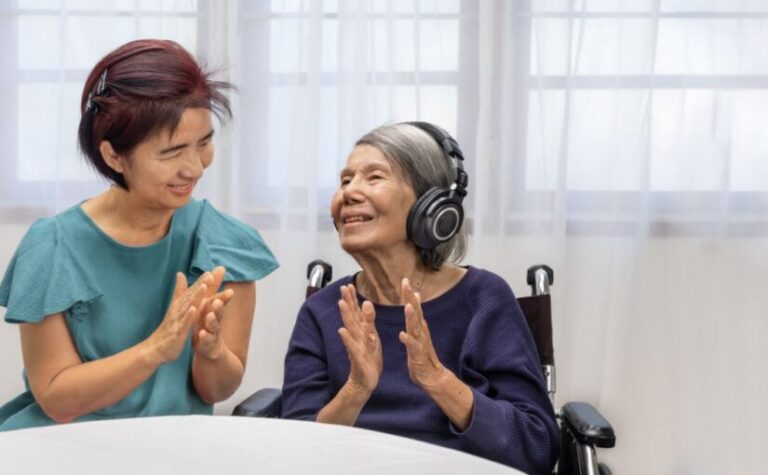By Catherine Wachira, PMHNP
Music therapy is defined as the use of music in a clinical setting with the goal of attaining therapeutic goals established by the patient and the provider. Some of the goals may include stress reduction, management of anxiety and depression, as well as improving self-expression. Music therapy may include playing instruments, listening to music, and singing of familiar songs. During music therapy, accredited music therapists promote, maintain, and restore mental, emotional, and physical health. Patients are actively involved in the session by making music and discussion in order to promote self-awareness, learning, and self-expression (Wang & Agius, 2018).
Music supports people across the lifespan from infants to people receiving end of life
care, and there are many different ways to incorporate music into various areas of our lives. A mother can sing to her baby to soothe him/her. In patients with dementia, music has been shown to decrease agitation, behavioral problems, and anxiety. Music affects physiological processes and improves physical and mental wellbeing in both children and adults. Some of the benefits of music include improvement in mental disorders such as depression and anxiety. Group interventions that are not led by a music therapist such as group drumming have also proven to be effective (Rebecchini, 2021). Consider joining a choir to improve vitality and overall mental health. Singing in choirs is not only uplifting but gives choir members a sense of community.
Studies have shown that simply listening to music is not only uplifting but also improves overall wellbeing. When music therapy is combined with standard care, positive outcomes are achieved. Music listening sessions should be conducted over 3 weeks to allow cumulative effects to occur (Wang & Agius, 2018). Music assisted relaxation has been proven to improve sleep quality, increase sleep duration, and lessen sleep disturbance (Wang & Agius, 2018).
Baird’s framework of music therapy highlights how music, given its ability to engage all aspects of oneself, results in an overall enhanced sense of self (Baird, 2018). In summary, music is a powerful force that is therapeutic to individuals across the lifespan including newborns, the elderly, and even patients struggling with depression and anxiety. In addition to standard treatment methods, music therapy can be added into care plans as an adjunct method of treating depression, anxiety, and even schizophrenia.
References
Baird A. (2018) The Impact of Music on the Self in Dementia. Journal of Alzheimers Disease Vol 61:827-841
Rebecchini L. (2021). Music, mental health, and immunity. Brain, behavior, & immunity – health, 18, 100374. https://doi.org/10.1016/j.bbih.2021.100374
Wang S, & Agium M. (2018). The use of Music Therapy in the Treatment of Mental Illness and the enhancement of Societal Wellbeing. Psychiatria Danubina, Vol. 30, Suppl. 7, pp 595-600





